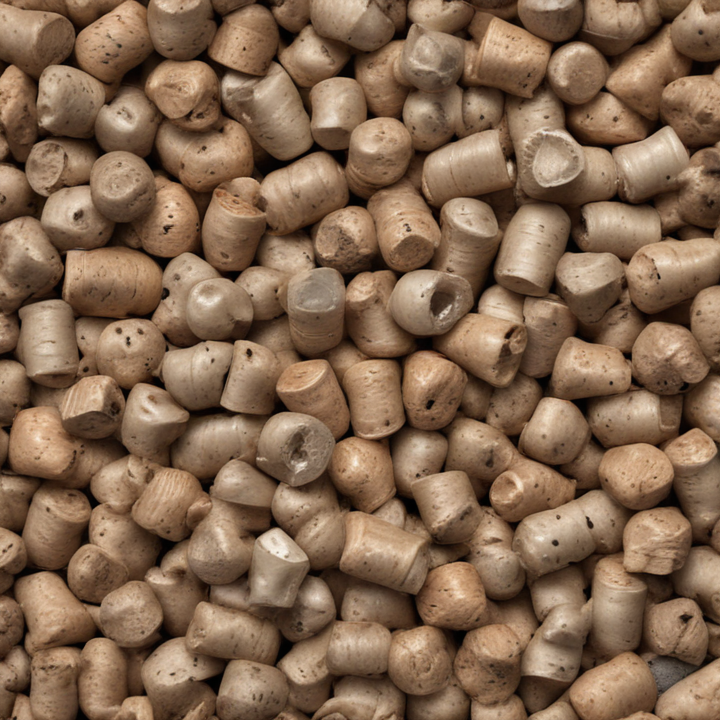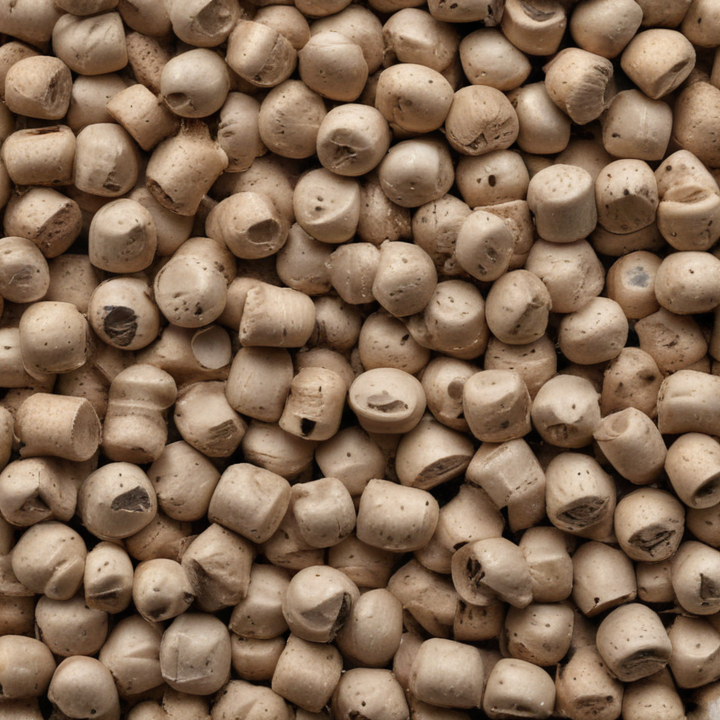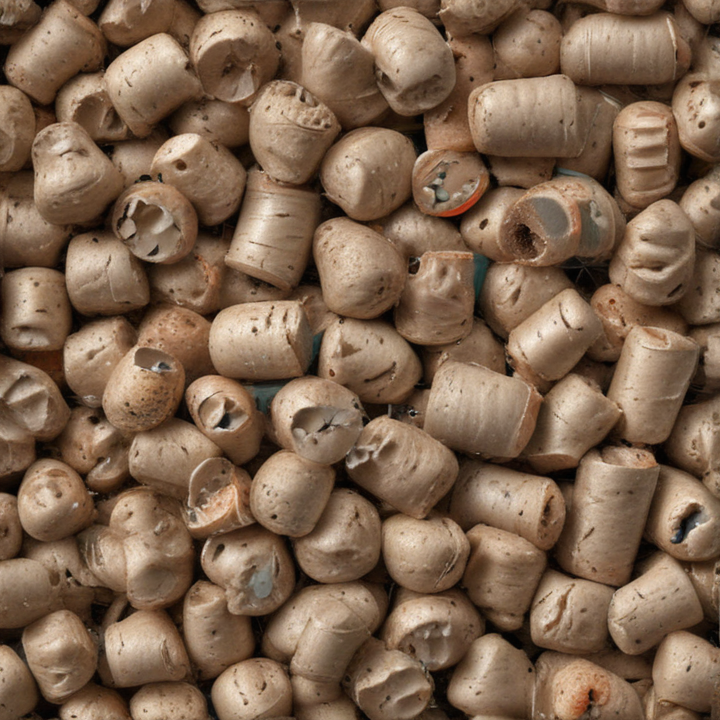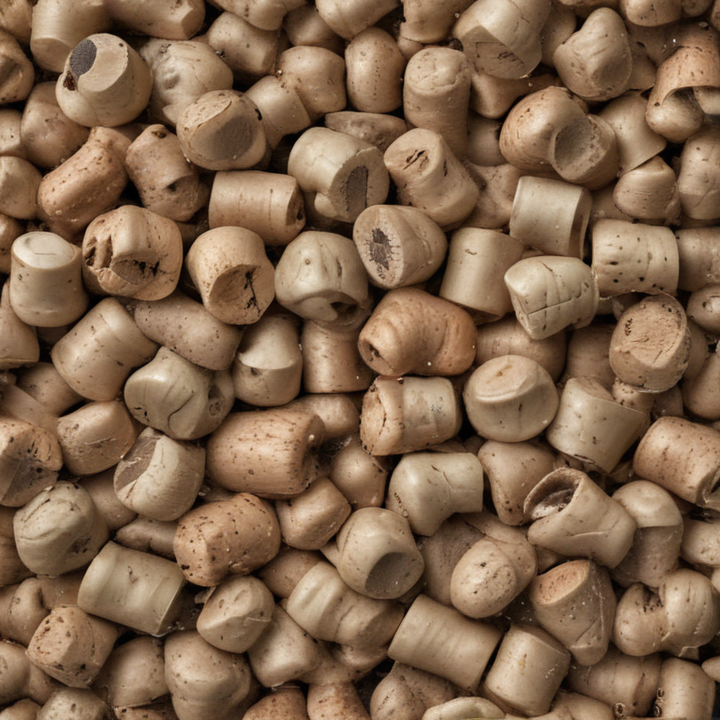softwood pellets Safety Certifications
Softwood pellets are widely used in heating systems due to their high energy content and eco-friendly nature. Ensuring their safe usage necessitates several safety certifications, which attest to their quality, efficiency, and environmental compliance.
1. ENplus Certification: A prominent certification for wood pellets in Europe is the ENplus certification. This certifies the entire supply chain, ensuring that the pellets meet stringent quality standards, including criteria for raw material sourcing, production processes, and transport methods. It primarily focuses on ensuring high energy content, low ash content, and the absence of harmful additives.
2. Pellethandwerk (EN 14961-2): This European standard ensures that pellets are suitable for non-industrial use, particularly in residential heating systems. It sets criteria for diameter, length, moisture content, ash content, and mechanical durability, among others.
3. DINplus: Originating from Germany, the DINplus certification mirrors the ENplus standards but is more recognized in the German-speaking regions. It ensures high quality and safe use by maintaining rigorous guidelines for ash melting behavior, chlorine content, and other critical parameters.
4. CANplus: In Canada, the CANplus certification is akin to ENplus and DINplus. It adheres to strict quality benchmarks, including parameters for bulk density, moisture content, and mechanical durability, ensuring safety and performance in residential heating applications.
5. Sustainable Biomass Program (SBP): While primarily aimed at larger-scale industrial users, the SBP certification ensures that biomass (including wood pellets) is sourced sustainably. It also verifies that the entire supply chain from forest to end-user adheres to environmental and social regulations.
By looking for these certifications, consumers can ensure that their softwood pellets are not only effective and efficient but also safe and environmentally responsible.
List Reference Technical Parameters of “softwood pellets”
Softwood pellets are a type of biomass fuel commonly used for heating in residential and industrial settings. Below are the primary reference technical parameters:
1. Calorific Value:
– *Gross Calorific Value (GCV):* Typically ranges from 18 to 20 MJ/kg.
– *Net Calorific Value (NCV):* Generally between 16 to 18 MJ/kg, considering moisture content.
2. Moisture Content:
– Usually ranges from 6% to 10%.
– Low moisture content is crucial for efficient burning and higher energy yield.
3. Ash Content:
– Typically less than 0.5%, contributing to low maintenance and cleaner combustion.
4. Bulk Density:
– Ranges from 600 to 750 kg/m³.
– Higher bulk density implies better storage and transportation efficiency.
5. Dimension and Durability:
– Diameter: Commonly 6mm or 8mm.
– Length: Varies between 5 mm and 30 mm.
– Durability: A minimum of 97.5% as per the ENplus A1 standard, indicating the physical robustness of pellets.
6. Fines Content:
– Less than 1% for premium pellets, ensuring minimal dust and better combustion efficiency.
7. Chlorine and Sulfur Content:
– Chlorine: Less than 0.02%, reducing corrosion risks in heating equipment.
– Sulfur: Less than 0.05%, crucial for reducing harmful emissions.
8. Mechanical Durability:
– Exceeds 95%, ensuring the structural integrity of pellets during transport and handling.
9. Additives:
– Typically, no binders or additives are used, adhering to natural pellet standards.
10. Pellet Quality Standards:
– Compliance with standards like ENplus, ISO 17225-2, or DINplus is typical, ensuring consistent quality and performance.
These parameters are pivotal for assessing the efficiency, environmental impact, and operational practicality of softwood pellets as a biofuel. Always refer to specific national or international standards for precise requirements and certification criteria.
List Product features of “softwood pellets”
Softwood pellets, often used for heating and energy purposes, offer a range of features that make them an attractive choice for consumers. Below are the primary product features of softwood pellets:
1. High Energy Output: Softwood pellets typically have a higher energy content compared to hardwood pellets, providing efficient heating with fewer pellets required.
2. Low Moisture Content: These pellets are manufactured with a low moisture content, usually below 10%, which enhances combustion efficiency and reduces the amount of energy needed to dry the fuel.
3. Consistent Size and Shape: Softwood pellets are consistently manufactured in a cylindrical shape with uniform size, ensuring smooth operation in pellet stoves and boilers without clogging or jam issues.
4. Clean Burning: Softwood pellets produce minimal ash and emissions when burned correctly, contributing to a cleaner environment and less frequent cleaning of heating appliances.
5. High Heating Value: Due to the resin content in softwood, these pellets have a high heating value, which translates into more heat per pound of pellets.
6. Renewable and Sustainable: Made from byproducts of the lumber industry, such as sawdust and wood chips, softwood pellets are a renewable energy source. Their production helps utilize waste that might otherwise go to landfills.
7. Low Ash Content: The low ash content in softwood pellets means less maintenance and cleaning required for stoves and boilers, making them convenient for users.
8. Efficient Packaging and Storage: Softwood pellets are often available in compact, easy-to-handle bags or bulk orders, facilitating efficient storage and transportation.
9. Reduced Sulfur Emissions: Burning softwood pellets results in lower sulfur emissions compared to fossil fuels, contributing to reduced acid rain and pollution.
10. Availability: Softwood pellets are widely available in many regions, ensuring a steady supply for consumers who rely on them for heating.
These attributes make softwood pellets a practical, efficient, and environmentally friendly choice for heating solutions.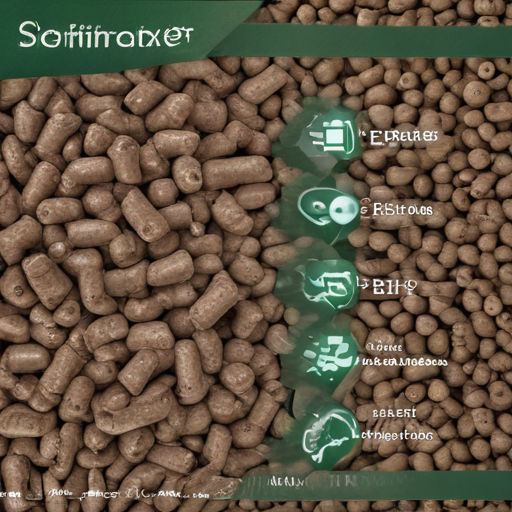
List Various Types of “softwood pellets”
Softwood pellets, derived from a variety of coniferous trees, are commonly used for heating and industrial applications. Below are some of the main types of softwood pellets:
1. Pine Pellets:
– Southern Yellow Pine: Known for its high resin content, Southern Yellow Pine offers a high BTU (British Thermal Unit) value, providing robust heat output.
– White Pine: Produces a cleaner burn compared to other pines, resulting in lower ash production.
2. Spruce Pellets:
– Typically feature a higher density and, like pine, offer a good BTU value. Spruce pellets burn efficiently and cleanly, making them a popular choice for residential heating.
3. Fir Pellets:
– Douglas Fir: Known for its high quality, Douglas Fir pellets have a high energy output and low ash content. They are often considered one of the premium options among softwood pellets.
4. Cedar Pellets:
– Often derived from Western Red Cedar, these pellets can be more aromatic and provide a unique heating experience, though they are less commonly available.
5. Larch Pellets:
– European Larch pellets are known for their high calorific value and low moisture content, providing efficient heating.
6. Hemlock Pellets:
– These are less common but offer a decent energy output and tend to be used more in blended pellet formulations.
Key Attributes:
– Heat Output: Generally, softwood pellets have a higher BTU rating compared to hardwood pellets due to their resin content.
– Ash Content: Softwood pellets typically produce less ash, making maintenance easier and reducing the frequency of cleaning pellet stoves or boilers.
– Efficiency: High efficiency and a clean burn are hallmarks of softwood pellets, regardless of the specific type.
Softwood pellets remain a popular choice for heating due to their high energy efficiency and lower environmental impact.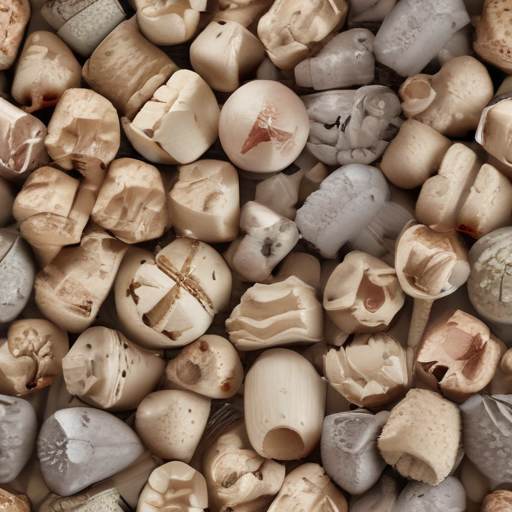
List Application of “softwood pellets”
Softwood pellets, derived from various coniferous trees like pine, spruce, and fir, have emerged as a multifaceted resource. Here are some notable applications:
1. Home Heating: Softwood pellets are a popular choice for residential heating. Their high energy density and low moisture content make them efficient fuel for pellet stoves and boilers, providing a cost-effective and eco-friendly heating solution.
2. Industrial Energy: Industries use softwood pellets to generate heat and power. They can replace coal and other fossil fuels in industrial boilers and power plants, helping to reduce carbon emissions.
3. Animal Bedding: The absorbent nature of softwood pellets makes them ideal for animal bedding. They are used extensively in horse stables, poultry farms, and small animal cages to maintain cleanliness and hygiene.
4. BBQ and Smoking: Specialty softwood pellets are used in pellet grills for barbecuing and smoking food. They impart unique flavors to the food, making them a favorite among cooking enthusiasts.
5. Absorbents: Softwood pellets are effective in spill control, particularly for absorbing oil and chemical spills in industrial settings. Their absorbent properties make them useful in environmental remediation efforts.
6. Biofuel: They serve as a sustainable biofuel option for combined heat and power (CHP) plants, contributing to renewable energy production and reducing reliance on fossil fuels.
7. Cat Litter: Their high absorptive capacity and natural odor-control properties make softwood pellets an excellent choice for cat litter. They are biodegradable and can often be composted.
8. Soil Amendment: When broken down, softwood pellets can be used as soil enhancers. They improve soil aeration, water retention, and nutrient content, aiding in plant growth.
9. Crafts and Decorations: Softwood pellets are sometimes used in DIY arts and crafts or as decorative elements in garden landscapes due to their uniform size and natural appearance.
These diverse applications underscore the versatility of softwood pellets, making them a valuable resource in various sectors from home heating to industrial use and beyond.
List Buyer Types of “softwood pellets”
When considering the buyer types for softwood pellets, it is essential to recognize the diverse range of industries and applications they cater to. Here are some key buyer types:
1. Residential Consumers:
– Homeowners: Individuals using softwood pellets for heating in pellet stoves or fireplaces to reduce energy costs and provide eco-friendly heating solutions.
– Rental Property Owners: Landlords seeking efficient and sustainable heating options to enhance property appeal and convenience.
2. Commercial and Industrial Users:
– Manufacturers: Factories and plants that use pellets for industrial heating or energy generation, leveraging their cost-effectiveness and sustainability.
– Hospitals and Schools: Institutions needing consistent and reliable heating solutions to maintain operations and comfort levels.
3. Agricultural Sector:
– Farmers: Utilizing softwood pellets for heating poultry houses, greenhouses, or other agricultural buildings, offering a consistent and controllable heat source.
– Equestrian Centers: Facilities using pellets for bedding, as well as heating stables and other structures.
4. Energy Providers and Utilities:
– Biomass Energy Plants: Facilities converting softwood pellets into renewable energy, contributing to grid supply and meeting green energy standards.
– Utility Companies: Entities incorporating biomass energy sources into their energy mix to diversify and improve sustainability credentials.
5. Hospitality Industry:
– Hotels and Resorts: Establishments using pellets to heat their properties, ensuring comfort for guests while reducing carbon footprint.
– Event Venues: Locations requiring efficient temporary heating solutions for outdoor or large-scale events.
6. Local Governments and Municipalities:
– Public Buildings: Municipalities heating community centers, public libraries, and other facilities using sustainable energy sources.
– District Heating Systems: Centralized systems providing heat to multiple buildings or neighborhoods using biomass energy.
These varied buyer types demonstrate the versatility and widespread adoption of softwood pellets as a renewable and efficient energy source across multiple sectors.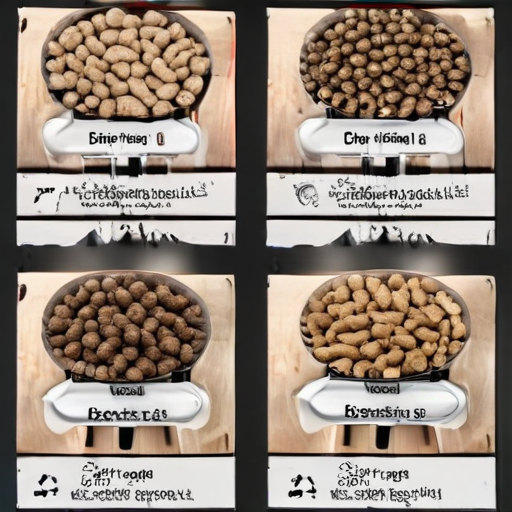
List “softwood pellets” Project Types for Different Industries
Softwood pellets are versatile and can be used in various industries due to their energy efficiency and sustainability. Here are some project types for different industries:
1. Residential Heating Systems:
– Home Heating: Using softwood pellets in pellet stoves and boilers to provide a cost-effective and eco-friendly heating solution.
– Space Heaters: Small-scale heaters for rooms, offering a convenient and efficient way of maintaining warmth.
2. Commercial Heating:
– Office Buildings: Efficient heating solutions for large office spaces, reducing fossil fuel dependence.
– Public Buildings: Use in schools, hospitals, and other public institutions to promote greener energy policies.
3. Industrial Energy Production:
– Power Plants: Co-firing softwood pellets with coal to reduce carbon footprints in electricity generation.
– Industrial Boilers: Used in various manufacturing processes for generating steam or hot water.
4. Agriculture:
– Greenhouse Heating: Providing a stable and controlled heat source for greenhouses, improving plant growth.
– Livestock Farming: Heating barns and other facilities, ensuring a warm environment for animals.
5. Food Processing:
– Bakeries: Using pellet-fired ovens for consistent and even baking, enhancing the quality of baked goods.
– Breweries and Distilleries: Generating steam for the brewing and distillation processes, ensuring energy efficiency.
6. Hospitality Industry:
– Hotels and Resorts: Heating large spaces, such as guest rooms, spas, and swimming pools, offering guests comfort while reducing energy costs.
– Restaurant Kitchens: Pellet-fired systems for high-efficiency cooking and heating.
7. Renewable Energy Projects:
– District Heating Networks: Wide-scale heating solutions for residential areas, reducing emissions and operational costs.
– Combined Heat and Power (CHP) Systems: Generating electricity and capturing usable heat simultaneously, increasing overall energy efficiency.
8. Transportation:
– Biomass Fuel for Ships: Utilizing softwood pellets as an alternative fuel for maritime vessels, contributing to lower emissions.
These project types highlight the versatility and environmental benefits of using softwood pellets across various sectors.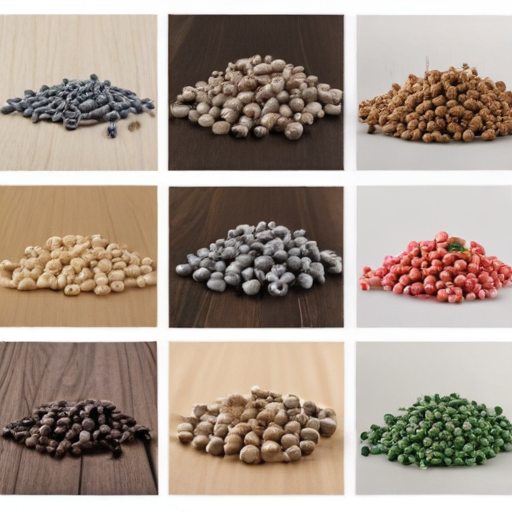
softwood pellets Accessories Upgrades and Custom Manufacturing Options
Softwood pellets are an efficient and eco-friendly source of fuel, and numerous accessories and upgrades can enhance their utility. For optimal performance, consider high-quality pellet storage solutions like airtight bins or silos to maintain pellet integrity by preventing moisture infiltration. Efficient pellet vacuums facilitate convenient and dust-free transfer from storage to pellet stoves, ensuring a clean and seamless operation.
Upgrades focus on stoves and burners for better efficiency and functionality. For instance, automatic ignition systems eliminate manual lighting, adding convenience and safety. Smart controllers can optimize combustion by adjusting air flow and pellet feed rates, enhancing fuel efficiency and heat output. Heat exchanger cleaning systems can be automated to reduce maintenance efforts and ensure consistent performance.
Custom manufacturing options for pellets can address specific needs. Tailoring pellet size and density can optimize combustion characteristics for different stove models, ensuring maximum efficiency. Additives can be incorporated during manufacturing to improve pellet durability and reduce ash production, minimizing cleaning frequency. Additionally, packaging options like moisture-resistant bags or bulk delivery systems can be customized to meet user preferences and logistical requirements.
In summary, softwood pellet systems can be enhanced significantly with proper accessories like storage solutions and pellet vacuums, alongside stove upgrades such as automatic ignitions and smart controllers. Customized manufacturing further allows for tailored pellet properties, optimizing performance for specific applications. These improvements not only elevate the user experience but also boost overall efficiency and sustainability.
List Quality Control and The Manufacturing Process of “softwood pellets”
Quality Control
1. Raw Material Selection:
– Use sustainably sourced softwood with minimal impurities.
2. Moisture Content:
– Moisture levels should be between 8-12%. Use moisture meters for accuracy.
3. Contaminant Screening:
– Use magnets and screens to remove metal and debris.
4. Particle Size Consistency:
– Ensure uniform particle size through sieving and grinding.
5. Binder-Free Adhesion:
– Pellets should bind naturally without additives; test pellet breakability.
6. Mechanical Durability:
– Use durability tests to ensure pellets can withstand transportation without breaking.
Manufacturing Process
1. Raw Material Collection:
– Source softwood chips, sawdust, or shavings from lumber mills.
2. Drying:
– Use rotary dryers to reduce moisture content to optimal levels (8-12%).
3. Grinding:
– Grind dried material into a consistent, fine powder using hammer mills.
4. Conditioning:
– Preheat the powder to enhance lignin binding (60-70°C).
5. Pelletizing:
– Use pellet mills to compress powder into cylindrical shapes (6-12mm diameter).
6. Cooling:
– Cool pellets to harden and reduce moisture using air coolers.
7. Screening:
– Screen cooled pellets to remove fines and ensure uniform size.
8. Packaging:
– Bag pellets in moisture-resistant packaging and label accurately.
Final Quality Checks
1. Moisture Content:
– Re-check moisture to ensure levels are 8-12%.
2. Ash Content:
– Test for low ash content (<1%) to ensure high combustion efficiency.
3. Density:
– Measure bulk density to ensure consistency (650-700 kg/m³).
By following these steps, manufactures ensure high-quality, durable softwood pellets suitable for various applications.
How to use “softwood pellets”
Softwood pellets are a versatile and efficient fuel source derived from wood materials like pine and spruce. Here’s a brief guide on how to use them effectively:
For Heating
1. Pellet Stove or Boiler:
– Purchase: Choose a model compatible with softwood pellets.
– Load Pellets: Fill the hopper with pellets. Ensure the pellets are dry and free from debris.
– Ignition: Follow manufacturer instructions to ignite the stove or boiler. Most modern units have automatic ignition.
– Adjust Settings: Set the desired temperature and airflow. Pellets typically burn hotter and faster than hardwood, so you may need to adjust accordingly.
– Maintenance: Regularly clean the ash tray and inspect for any build-up to maintain efficiency and safety.
For Cooking
1. Pellet Grills:
– Load Pellets: Fill the grill’s hopper with softwood pellets.
– Ignition: Most pellet grills have an automatic ignition system.
– Temperature Control: Set your desired cooking temperature. Softwood pellets ignite quickly and provide consistent heat, ideal for smoking and grilling.
– Cooking: Place your food on the grill. Monitor temperature and pellet levels to ensure consistent cooking.
– Cleaning: After use, clean out ash residue and check the grill for any blockages.
For Animal Bedding
1. Preparation:
– Hydrate if needed: Some may choose to moisten the pellets slightly for better comfort.
2. Spreading:
– Spread an even layer of pellets in the animal’s living space.
– Regularly check and replace soiled pellets to maintain hygiene.
Tips and Safety
– Storage: Store pellets in a dry, cool place to prevent moisture absorption, which can affect their efficiency.
– Ventilation: Ensure proper ventilation when using pellets for heating to prevent carbon monoxide build-up.
– Supervision: Always supervise equipment during use to prevent accidents.
By following these steps, you can efficiently use softwood pellets to heat your home, cook delicious meals, or provide comfortable bedding for animals.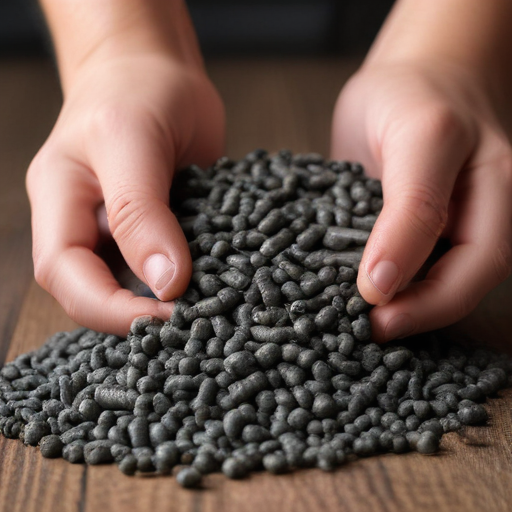
“softwood pellets” Comparative Analysis
Softwood pellets, primarily derived from coniferous trees like pine, spruce, and fir, are a popular choice for biomass fuel in residential and commercial settings. Here’s a comparative analysis focusing on their key attributes:
1. Energy Efficiency:
Softwood pellets typically have a higher energy output compared to hardwood pellets, due to higher resin content. This results in more efficient combustion, yielding more heat per unit. On average, softwood pellets can produce around 8,600 BTUs (British Thermal Units) per pound.
2. Ash Content:
One potential drawback is that softwood pellets tend to produce more ash than hardwood pellets. However, advancements in pellet production have led to more refined softwood pellets that exhibit lower ash levels.
3. Moisture Content:
Like all wood pellets, the moisture content of softwood pellets is crucial for efficient burning. Typically, they have a low moisture content, often ranging from 5% to 10%. Lower moisture levels lead to a higher calorific value and reduced emissions.
4. Environmental Impact:
Softwood pellets are often considered more sustainable. Coniferous trees tend to grow faster than hardwoods, making them a more renewable resource. Sourcing from well-managed forests can further enhance the environmental benefits.
5. Cost:
Generally, softwood pellets may be slightly more expensive than hardwood varieties. This is due to their higher energy output and the costs associated with their refined production processes.
6. Availability:
Softwood pellets are widely available in markets where coniferous forests are prevalent, such as North America and parts of Europe. This availability ensures consistent supply and competitive pricing.
7. Burner Compatibility:
Most modern pellet stoves and boilers are designed to handle both softwood and hardwood pellets. However, due to higher energy output and slightly different burn characteristics, some users may need to adjust stove settings when switching pellet types.
In summary, softwood pellets offer superior energy efficiency and sustainability with reasonable ash content and moisture levels. While potentially costlier, their high heat output and renewability often justify the expense for many users.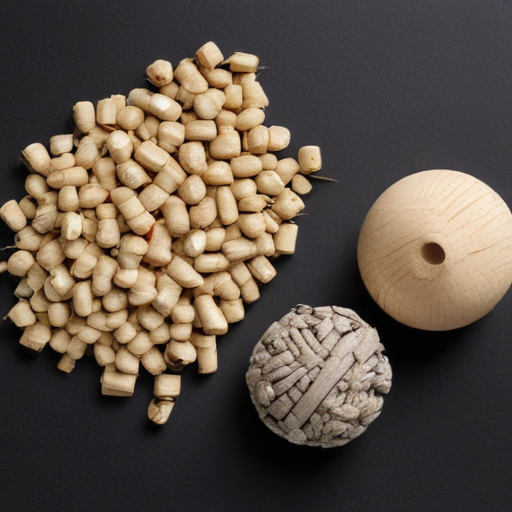
“softwood pellets” Warranty and Support
Softwood Pellets Warranty and Support
At [Your Company Name], we stand behind the quality of our softwood pellets, ensuring they provide exceptional performance for your heating needs. Our softwood pellets come with a comprehensive warranty and robust support to give you peace of mind.
Warranty Details:
1. Duration: Our softwood pellets are warrantied for a period of one year from the date of purchase. This warranty covers any defects in material and workmanship under normal usage conditions.
2. Coverage: The warranty ensures that our pellets are free from any manufacturing defects that could affect their performance. Should you encounter any issues such as excessive ash, unexplained clumping, or other performance-related problems, we will replace the defective product free of charge.
3. Exclusions: The warranty does not cover issues arising from improper storage, handling, or usage that deviates from the recommended guidelines. Damage due to moisture exposure or contamination with other materials is also excluded.
Support Services:
1. Customer Service: Our dedicated customer service team is available to assist you with any questions or concerns you may have about our softwood pellets. Contact us via phone, email, or our website’s live chat function for prompt assistance.
2. Technical Support: For more complex issues, our technical support team is ready to help. Whether it’s troubleshooting pellet stove performance or addressing quality concerns, we provide expert advice to ensure optimal pellet use.
3. Returns and Replacements: If you identify any defects covered by the warranty, our hassle-free returns and replacement process ensures that you receive a new batch of pellets quickly. Simply contact our support team with proof of purchase and a description of the issue.
In choosing [Your Company Name] softwood pellets, you are opting for quality backed by a strong warranty and excellent customer support. Thank you for trusting us to meet your heating needs.
List “softwood pellets” FAQ
Softwood Pellets FAQ
1. What are softwood pellets?
– Softwood pellets are a type of biomass fuel made from compressed sawdust, bark, and other byproducts of softwood trees, such as pine. They are used primarily for heating in pellet stoves and boilers.
2. How are softwood pellets different from hardwood pellets?
– Softwood pellets generally have a higher heat output and lower ash content compared to hardwood pellets. This is due to the different resin and lignin content in softwood, which can create a more efficient burn.
3. What are the benefits of using softwood pellets?
– Benefits include higher energy efficiency, less ash production, and a more consistent burn. They are environmentally friendly as they use waste materials and are a renewable resource.
4. Can softwood pellets be used in all pellet stoves?
– Most pellet stoves can burn both softwood and hardwood pellets, but it’s always best to check the manufacturer’s recommendations for your specific stove model.
5. How much do softwood pellets cost?
– The cost can vary based on location, quality, and market conditions. On average, expect to pay between $200-$300 per ton.
6. How do you store softwood pellets properly?
– Store them in a dry environment to prevent moisture absorption, which can cause them to degrade. Use sealed containers or bags to ensure they remain dry.
7. Do softwood pellets produce a lot of ash?
– Softwood pellets typically produce less ash compared to hardwood pellets, which means less frequent cleaning of your stove or boiler.
8. Are softwood pellets environmentally friendly?
– Yes, they are considered a sustainable and carbon-neutral energy source because the CO2 released during combustion is roughly equivalent to the CO2 absorbed by the trees during their growth cycle.
9. Where can I buy softwood pellets?
– They can be purchased at hardware stores, home improvement centers, specialty fuel suppliers, and online retailers.
10. Do softwood pellets have a shelf life?
– When stored properly in a dry place, softwood pellets can last for several years without significant deterioration in quality.
By understanding these key points, you can make an informed decision on whether softwood pellets are the best choice for your heating needs.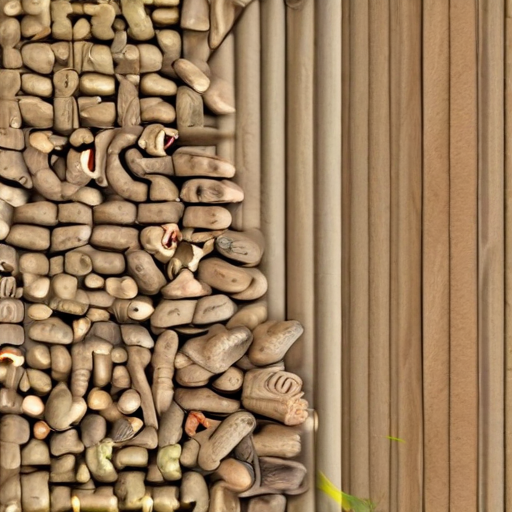
Top 10 FAQ with answer about softwood pellets for Buyer Sourcing from China
Absolutely, here are the top 10 frequently asked questions (FAQs) about sourcing softwood pellets from China, along with their concise answers:
1. What Are Softwood Pellets?
Softwood pellets are small, cylindrical pieces of compressed softwood sawdust and shavings, used primarily as fuel for heating.
2. Why Buy Softwood Pellets from China?
China offers competitive pricing, large production capacity, and advanced manufacturing technologies, making it a cost-effective choice for bulk orders.
3. What Types of Softwood Are Used?
Commonly used softwoods include pine, spruce, and fir. Softwood pellets from these species are known for high energy content and low ash production.
4. What Are the Key Quality Metrics?
Key metrics include energy content (typically around 4.7-5.3 kWh/kg), moisture content (should be below 10%), and ash content (typically below 0.5%).
5. Are Chinese Pellets Eco-Friendly?
Yes, many manufacturers in China follow sustainable practices, sourcing wood from certified managed forests to ensure eco-friendliness.
6. What Certifications Should I Look For?
Look for certifications like ENplus, DINplus, and ISO 17225-2, indicating high-quality standards in production and sustainability.
7. What Is the Minimum Order Quantity (MOQ)?
MOQs can vary but typically range from 20 to 200 tons, depending on the supplier. Discuss specific requirements directly with the supplier.
8. How Are the Pellets Packaged?
Pellets are usually packaged in 15-kg bags, 1-ton jumbo bags, or delivered in bulk according to buyer requirements.
9. How Long Is the Shipping Time?
Shipping typically takes 20-40 days, depending on the destination, shipping method, and customs processes.
10. What Are the Payment Terms?
Payment terms differ by supplier, but common options include Letter of Credit (L/C), Telegraphic Transfer (T/T), and sometimes even Trade Assurance if dealing through platforms like Alibaba.
These FAQs should provide a starting point for anyone looking to source softwood pellets from China. Always ensure to carry out due diligence and verify supplier credentials to ensure high quality and reliability.

